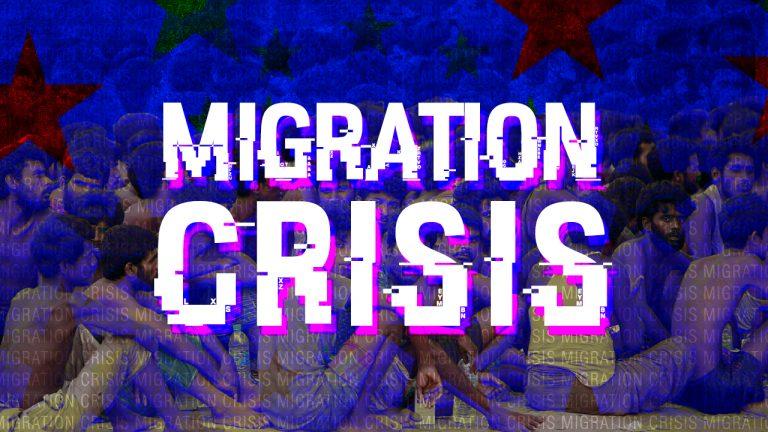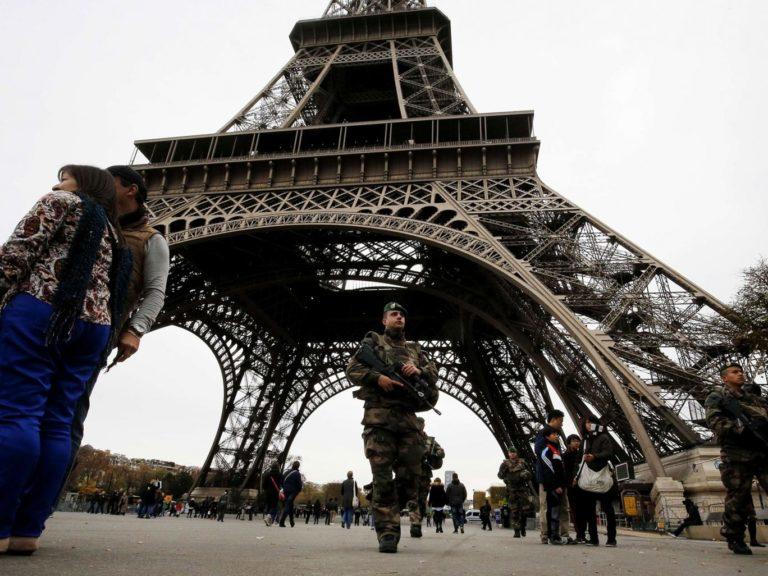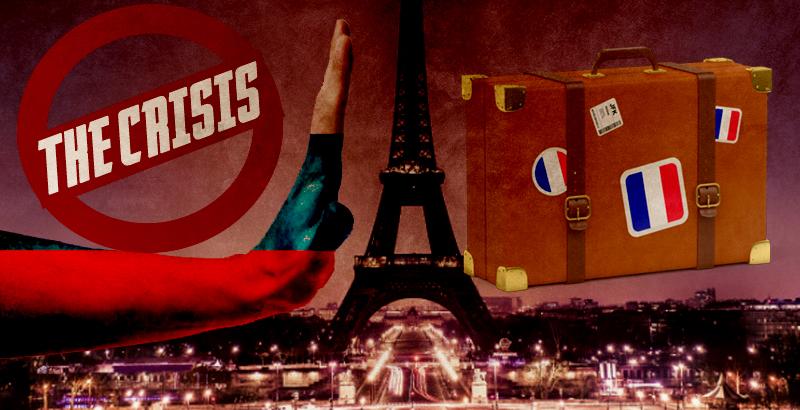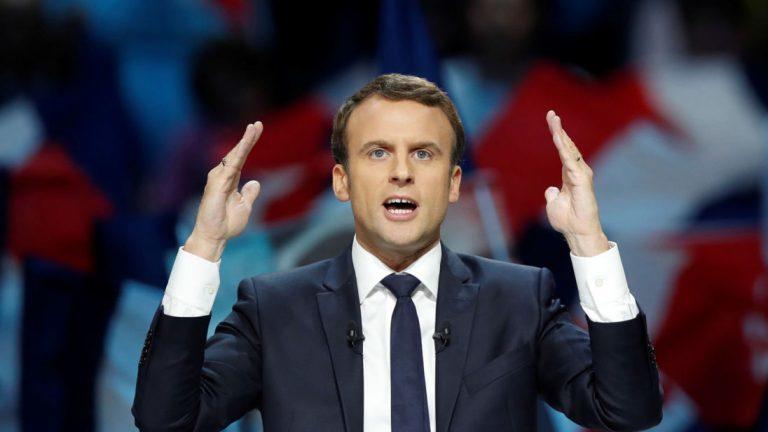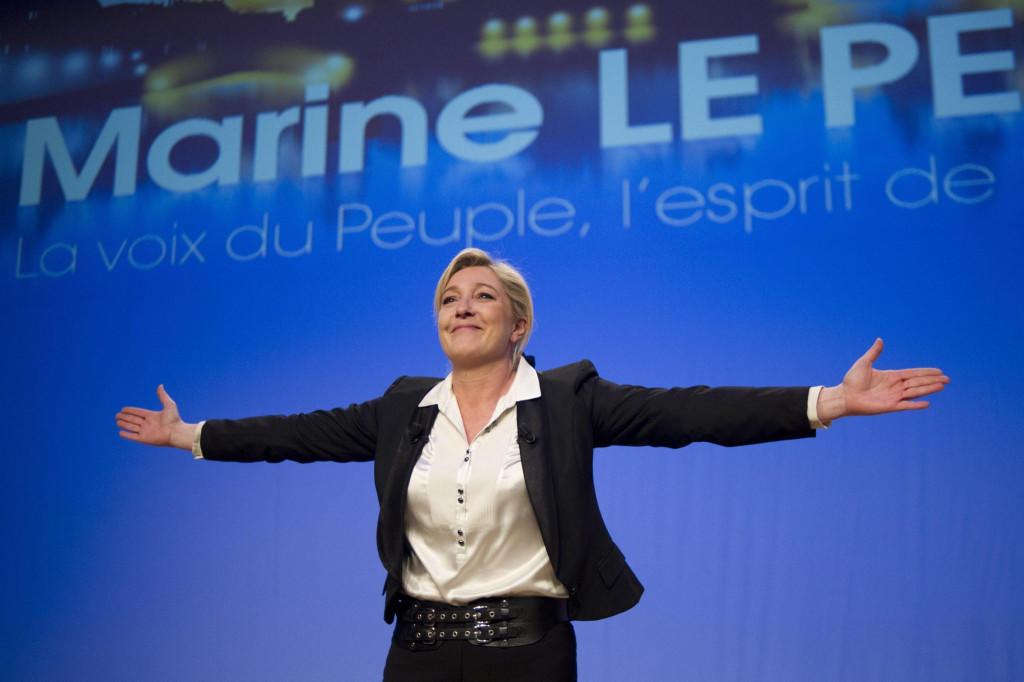Submitted by Emma Dujardin, via SouthFront,
Security is becoming more flexible during the growing process of globalization and regional integration in Europe, it is no longer possible to ignore new challenges to international stability, among which migration can stand out: as a result of the increasing flow of people freely moving around the world, migration is being viewed through the prism of security.
Over the past fifteen years, the link between immigration, public order and national security has become ingrained in French society. France has one of the largest Muslim diasporas in Western Europe; it is becoming increasingly difficult for republican institutions to maintain a healthy and constructive dialogue with this diaspora. In addition, foreign policy and especially active French invasion in regions highly affected by terrorism, in particular in West Africa, caused direct consequences for the country and its national security – an influx of immigrants from African countries and an increasing number of terrorist attacks of ISIS.
1. According to the official data, French immigrants constitute only 10% of the population, but the French themselves are already beginning to feel the trick in these statistics. They talk about the inevitable Africanization and Arabization of Europe, in general, and France, in particular, by the end of 2050. Researchers who share the idea of a so called “new great Migration Period”, reintroduced by the French writer Renault Camus, predicting the replacement of the French (and European) autochthonous population, as well as its civilization, by “others”, mainly issued from the Maghreb and Black African countries, often are “disqualified” in the French Republic as their ideas run counter to the leading “left” opinion.
The integration of the immigrants into the European society is a must, but there are many factors that ruin the process of their integration and lead to the phenomenon called “communitarianism”. The main ones, as researches claim, are schooling, education, employment and housing that are not arranged for a great number of immigrants that the French Republic has been welcoming since 1980s. As the result, immigrants, who should have been integrated completely to the French society, stay outside, welcomed by the officials but unwelcomed by the system. This all results in immigration that becomes wild and unbridled, that cannot adapt by itself to the Western way of life, threatening the country’s security, and leads to the “denationalization” of France. Some researchers even talk about a so called “tribalization” of France, revealing the stronger link between mass immigration and increased crime in the country, noting that official crime statistics have been falsified for many years, and in fact, every 24 hours there are “13,000 thefts, 2,000 attacks and 200 rapes” committed in France.
2. Falsified official statistics are only half the trouble. The worst is the ban on certain types of statistics needed to understand the migration situation in France.
On August 26, 1789, the French Declaration of the Rights of Man and Citizen affirmed the absolute Equality of all French among themselves, regardless of religious beliefs, ethnicity or race, Freedom reigned in France, extending to every French from the day of his birth, and the French citizenship was believed to contribute to the republican ideal of Brotherhood. France became the Home of Human Rights, and the French nation, La Grande Nation, acquires “universality”, defining itself as a group of fellow citizens without a single reference to the concepts of race, ethnicity, or religion. The purpose of such decisions was to create a space of harmony that unites people, so all those characteristics that could divide French citizens into groups were erased from above.
Thus, there were no more Catholics or Protestants or internal French ethnic groups, and the ethnic and religious statistics has been prohibited. We do not have an exact idea of the number of French citizens of foreign origin or the number of citizens professing a particular religion, although we understand that every year there are more and more such citizens.
Researchers interested in the most accurate data possible, including representatives of right-wing and extreme right-wing parties, are trying to approach the migration issue from different angles. In particular, right-wing parties have often turned to screening for drepanocytosis, sickle cell anemia, a genetic blood disorder to which, according to numerous studies, people from Sub-Saharan and Maghreb countries are the most susceptible. In France, screening for sickle cell anemia, carried out by the French Association for the Diagnosis and Prevention of Childhood Disability in Newborns (Association Française pour le Dépistage et la Prévention des Handicaps de l’Enfant), is targeted at newborns of Mediterranean, African and Caribbean origins. There were statistics published in the public domain, a screening map for 2016 could be easily found: in the Ile-de-France region, 73.56% of newborns were already at risk of the disease, and generally in the whole country there were 39.39% of newborns at risk. This statistics were used by right-wing to measure the number of non-white newborns and thus to illustrate the Africanization of France. From 2018, disease statistics would no longer be published, as its transition into ethnic statistics is considered to be dangerous. Still, thanks to the latest data we can imagine what regions have largest immigrant communities.
3. In big cities of with a high concentration of French of foreign origin, the phenomenon of communitarianism – the dense residence of immigrants in closed communities, – flourishes, making these immigrant areas “lawless”. During the COVID-19 pandemic, riots broke out across the country in immigrant areas due to an accident on the night of April 20, in Villeneuve-la-Garenne, when a motorcyclist collided with a police car. The victim’s origin is carefully hidden, however, at the same time, the media talk about his numerous crimes (he was convicted 14 times for sexual violence, crimes related to drug trafficking, extortion), about his being under judicial supervision, about repeated violations of the quarantine regime, and about the motorcyclist riding an unregistered motorcycle without a helmet. A whole series of clashes between the “jeunes” and the police unfolded throughout the densely populated disadvantaged areas. In addition, the public became aware of the instructions for the national police of the Calvados department from April 24, which stated that if there was no threat to health or the threat of serious damage to property, there was no need to intervene in areas with a high concentration of the population (immigrant areas) during Ramadan. The extreme right called this instruction the religious immunity provided by the government, a sign of its weakness in front of the Islamist groups operating in the country.
This summer France experienced a new round of the “becoming wild” process, when a wave of violent crimes, including ones against the police, took place in many major cities. Attacks, rapes and murders, of which French immigrants are suspected or already condemned, shook the public, and the image of Emmanuel Macron was especially damaged when he, unwilling to call a spade a spade, classified the crimes as “uncivilized behaviour”.
Despite public outrage at such statements and the fact that the president has ranked minor violations of public order and misconduct with the murder of policemen on a par, the French people start to understand that they cannot make the government hear them so that the political elites living outside of the “real” world, would take measures to counteract mass immigration, since the French “Gauchiste” political system does not allow a free expression of opinions on such delicate topics.
4. The next elections are set for spring 2022, and for now France has two potential candidates who will fight each other to take the presidency.
Having been elected at the end of the 2017, Emmanuel Macron can present his candidacy in 2022 for a second term according the Article 6 of the French Constitution. However, as he says, the second term is not his priority for the moment, the most important is to launch the reforms, including in the migration sphere, to bring down Marine Le Pen and her Party.
Marine Le Pen, on the other hand, can effectively use the difficult situation with immigrants to gain the trust of her electors. Thus, in several communiqué Rassemblement National refers to the French population who feels threatened by the immigrants in their country because of the frequent attacks during this summer – “one of the most deadly summers in the history of France”. Marine Le Pen proclaim the safety of the French people “the priority” of the Party and states: France turns wild and savage, and 70% of the French see and sense it [Ifop], while the government keeps believing that it’s a fantasy. She will definitely place emphasis on the migration problems during her campaign, as they were focused on during the previous presidential race, and the question is if the French are ready to respond positively to the RN measures they have always considered to be extremely severe.
If Marine Le Pen wins the presidential elections, that will definitely help other right wing parties to gain confidence in their countries, for instance, Alternative for Germany that is currently in its’ internal crisis. The situation with German immigration is not much better than with French one: European Medias are full of headlines about immigrants (typically repeat offenders who commit knife attacks, beatings, rapes) attacking German citizens on the streets.
The problem of the second and third generations does not bypass one of the leading European countries: immigrants who do not have the opportunity or a desire to get a job, learn a language, send their children to school where they would get the opportunity to socialize, living in immigrant areas on unemployment benefits, feel socially isolated and unfairly treated in comparison to native Germans. This feeling of injustice of the society can lead the younger generation to revolt against the system, often resulting in violence. What is more, the terrorist threat comes usually from Europeans of foreign origin who have failed to find their place in society. Researchers, drawing the portrait of a “terroriste maison” right up to the 2015 terrorist attacks in France, suggest that they are mostly young people with immigrant background who have had problems with the law in the past. The overwhelming majority had more or less lengthy sentences due to thefts and other violations of order. Prison gives them the opportunity to root their hatred of a liberal society, which they do not understand because of secular principles that contradict usually their religious beliefs. For a certain period of time, future “terroriste maison” have been influenced by the Islamist gurus most often found on the Internet, where jihadists are very active in recruiting Muslims seeking their path in life. Many young French Islamists travel to Syria and Iraq, some remain in France awaiting their guru’s call for holy war in France and other European countries as it was in 2015-2016.
Ever since the Revolution France, a country of immigration, has been considered a “universal” nation, where Freedom, Equality and Brotherhood of its citizens should not have been threatened by any references to race, ethnicity, or religion. However, the phenomenon of communitarianism, which is nowadays a stable and extremely important issue in French society, contradicts the Ideals of the Republic, because it, in fact, subjects the society to fragmentation according to religious or ethnic criteria. This issue is perceived exclusively from the point of view of insufficient integration of Muslim “jeunes”, and the interpretation of the reasons leading to public disorder does not evoke any socio-economic problems that immigrants who are failed to find their place in the society have to face.
Terrorist attacks are reinforcing the link between immigrants and terrorism in society. For France, the threat of terrorism becomes internal, as it comes from within the state, from its own citizens – “terroristes maison”. The deep social problems, inequality, social marginalization faced by immigrants make them vulnerable to manipulation by fundamental Islamism, which can lead to their radicalization. Strong negative consequences for the country and its people would be a result of building an “internal enemy” and generalization about immigrant areas being full of potential “terroristes maison”.
Instead, all French migration problems must be addressed outside the security field as long-standing and extremely complex socio-economic problems, otherwise, immigrant areas prone to communitarianism could become a cause for greater concern.
Thus, the French migration system ended up in zugzwang: the long-term practice of welcoming and loose integration has opened a window for a massive flow of immigrants, whose cultural identity differs significantly from the cultural identity of the host society. Conservative Muslims, who have traditional views on society, preserve their religious identity and their way of life, experience difficulties in “cohabitation” with the liberal secular identity of France, destroy the ideals and values of the Republic, so fiercely defended by the “native” French, and endanger the cohesion of society.
